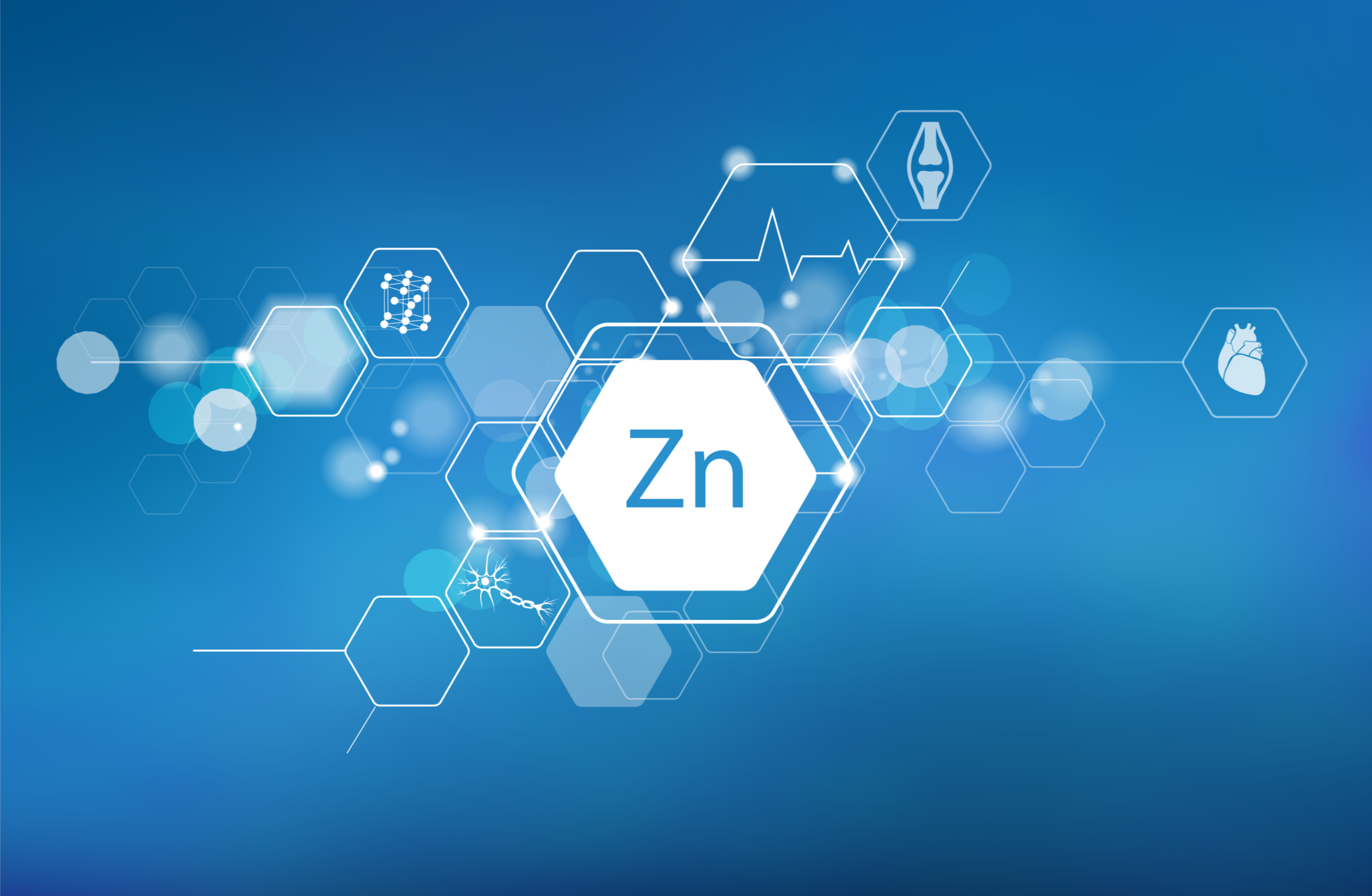
Zinc is a trace mineral, meaning your body only needs it in small amounts. While only a little bit of zinc is needed, it happens to play a big role when it comes to good health.
Curious about zinc and what it does to support immune health?
Check it out.
Zinc 101: What It Is & What It Does
Zinc is an element that impacts several functions in the body. It’s responsible for stimulating the activity of over 100 enzymes and is critical for maintaining a healthy immune system.
The body needs zinc to keep the immune system running smoothly. While rare in the United States, zinc deficiencies can cause us to be more vulnerable to harmful invaders.
How exactly does zinc influence the immune system? While the relationship between the two is complex, research shows that a protein known as NF-kB pulls zinc into the immune cells that work the fastest to fight pathogens. Once inside, zinc interacts with these cells to promote a balanced immune response. Just as an under-active immune system isn’t ideal, neither is an overactive one.
It’s no wonder zinc is so popular!
Zinc is responsible for assisting the body in making protein and DNA, the genetic material contained in all cells, at every stage of life. This mineral is also believed to regulate the way neurons communicate with each other. Researchers suggest that zinc is helpful for the proper function of the hippocampus, ultimately affecting how we learn and how our memories are formed.
For a trace element that the body needs so little of, zinc plays an integral role in health and wellness on several different levels.
How Much Zinc Does The Body Need?
The Recommended Daily Amount (RDA) of zinc is based on age. Adult women are encouraged to get 8mg per day, while adult men should have 11mg daily.
Because zinc isn’t stored in the body, the best way to get your RDA is through your diet or a supplement.
Zinc is found in several food sources. Oysters are the richest source of zinc that exists, containing over 600% of the recommended daily intake (RDI) in each 3.5 ounce serving. Zinc is found abundantly in red meat, dark chicken meat, turkey and lamb. Lobster and crab also contain a good amount of zinc.
Vegetarians can find zinc in all legumes, including lentils, beans and chickpeas. Nuts like almonds and cashews are also good meat-free sources of zinc. You’ll also find zinc in many fortified cereals. Vegetarians should keep in mind that they could require up to 50% more of the RDI of zinc because it contains a lower bioavailability when sourced from plant-based foods.
What if I’m not getting enough zinc in my diet?
Zinc supplements are a popular way to give the body’s natural defenses a little extra support. Just as CBD is helpful in promoting balance in the body, zinc is helpful in promoting balance in the immune system.
If you’re not getting a sufficient amount of zinc in your diet, do not have zinc-rich foods available, or simply want to make sure you’re getting enough, zinc supplements may be a great option.
With twice the daily value of vitamin C and 100% of your daily value of zinc, Joy Organics Vitamin C + Herbal Complex is a great way to offer your body extra support whenever you need it most.
As with anything health-related, it’s always advised to speak to your doctor or a health care practitioner before starting a supplement, including zinc.
These statements have not been evaluated by the Food and Drug Administration. This product is not intended to diagnose, treat, cure, or prevent any disease.
